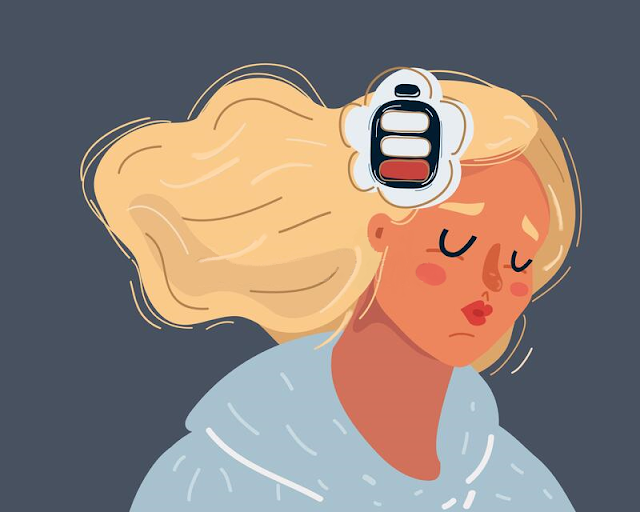Feeling Tired Lately?
CHECK THESE 4 KEY FACTORS THAT CAN HELP YOU IMPROVE YOUR ENERGY LEVELS
As late spring brings about changes in weather, our bodies are also going through a transition phase, when it is especially important to take care of our health. It is not uncommon to feel more tired these days, while we are adapting to the new climate. So if you tend to feel more tired than usual, just review the list below to see what you need to pay attention to, in order to improve your energy levels.
SLEEPING PATTERNS
Perhaps the most important is to ensure we maintain a
consistent and fulfilling sleeping schedule. Not getting adequate sleep regularly
has been associated with the main
health challenges of our times: heart disease, hypertension, stroke, weight
gain, diabetes, and dementia.
Sufficient Sleep
– The misconception that we need to limit our sleep so as to fit in all of our
plans and responsibilities is still prevalent within most societies. Contrastingly,
the consensus across contemporary studies confirms that a healthy individual
should be getting around seven to eight hours of sleep a night, opposed to six
or less, that became socially normalised.
Bedtime Hours
– The timeframe we choose also plays a major role in the quality of the sleep
and how refreshed we feel the next day. 10 p.m. to 6 a.m. tend to be the optimal
sleeping hours, as these are aligned with the human body’s natural circadian
rhythm, through the fact that it mimics the sun’s rising and falling. “When it
comes to bedtime, there’s a window of several hours – between 8 p.m. and 12 a.m. – during
which your brain and body have the opportunity to get all the non-REM and REM
shuteye they need to function optimally.” – Matt Walker, PhD, head of the Sleep
and Neuroimaging Lab at the University of California, Berkeley.
Environmental Factors
– Additionally, environmental factors like lighting, temperature, humidity,
allergens exposure, noise, etc. directly impact our sleep quality. Exposure to
light during night-time was found to disrupt melatonin secretion, which maintains
the body’s sleep cycle, and has an antioxidant role. Thus, it is advised to
sleep in very dark rooms and avoid lights, especially bright, blue lights
(e.g., from TVs, computers, mobile phones) for at least one hour before
bedtime. Likewise, as our body temperature naturally decreases while falling
asleep, rooms with cooler temperatures are more beneficial to warmer ones
during night-time.
Pre-Bedtime Habits – Our daily life habits may also disrupt healthy sleeping patterns. Excessive, prolonged caffeine consumption has been linked to insomnia, while consumption after 4 p.m., generally, tends to affect sleep quality. Heavy meals or excessive liquid consumption after 7 p.m. also put additional stress on our bodies and decrease our ability to rest effectively. Similarly, although normally beneficial, exercising – at medium to high intensity – before sleeping, will spike our energy levels, enhancing the body’s levels of cortisol and adrenaline, which may further disrupt sleep. On the other hand, habits like meditating, warm showers, and light stretching exercises before bedtime could help us relax, enhance our seep quality, leaving us feel well-rested, more energetic and more positive throughout the day.
DIGESTION
In today's “fast life”, marked by tendencies to overload,
oftentimes leading to burnout, it can seem like a lesser important matter to
observe the signs sent by our digestive system.
Eating Habits & Nutritious Foods – In order to keep up with daily life responsibilities, we can
lose track of what’s truly beneficial and a real “ally” for our bodies and
performance capabilities. Instead, we fall into the trap of consuming foods deprived
by nutritional content, or even containing harmful ingredients (e.g., excessive
alcohol, caffeine, sugary / high-fat foods & snacks). Pairing this with the
“on-the-go”, fast-food culture, creates a stress-inducing pattern. Such stress
inhibits the body’s capacity to digest the foods and absorb the necessary
nutrients needed to thrive. Therefore, a potential way to improve your
digestion is understanding how important it is to prioritise an unrushed,
well-balanced, consistent diet.
Consulting a Dietician – Just as important, consulting a registered dietician for personalised guidance could make a considerable impact on your energy levels. Consultations involve a thorough analysis of your health background and lifestyle patterns. Potential additional requirements involve (1) blood tests and investigations, to ensure an adequate understanding; (2) diet and lifestyle adjustments; (3) specific dietary supplements, to aid deficiencies or personal needs.
PHYSICAL ACTIVITY
Regular exercising has been proven to aid in maintaining an
optimal weigh, reducing risk of heart diseases, managing blood sugar and insulin
levels, improving mood, mental health and cognitive functions, as well as strengthening
bones and muscles – thus, significantly improving quality of life. So let’s see
what is needed to develop a fulfilling routine.
Frequency
– It is widely advised that everyone engages in at least 30 minutes of physical
activity every day or reaches at least 150 minutes of moderate intensity
activity a week / 75 minutes of higher intensity activity a week. This
timeframe may vary depending on a number of factors, which are presented below.
Intensity and Duration – The minimum is determined by age group, level of fitness, and
personal needs or goals. As a guideline, children and young people should be
more active than adults and the elderly, reaching an average of at least 60
minutes of moderate intensity activity a day throughout the week, so as to develop
their movement skills, muscles, and bones. Adults should be physically active
every day, and aim for various and versatile type of activities, that engage as
many of the body’s muscles. Seniors should aim for daily physical activities, even
if it’s just lightly – the goal being to enhance balance, flexibility, and
strength, during at least two days a week.
Time of the Day –
There is no consensus regarding the best time of day to engage in physical
activities. Some studies concluded that exercising when your body temperature
is at its highest, usually in the afternoon (i.e., 2 p.m. - 6 p.m.), may enhance
effectiveness, whether the focus is flexibility or strength. Correspondingly,
just as important are morning and evening sessions, according to your schedule
and goals.
Training Habits – As it takes time for fluids to be absorbed into our bodies, drinking regularly, throughout the day, aiming for 450 ml of fluids in the 2 - 4 hours before you exercise. Afterwards, drink more if you feel the need, so as to replenish lost fluids. This ensures that your muscles will function optimally. Note that, drinking too much water during exercising could, however, lower your energy levels – so paying close attention to your body signals, environment conditions, type and intensity of workout are strictly necessary. Accordingly, aim for a window of at least 1 hour before meals and workouts, to avoid digestion issues and increased tiredness. Moving on, don’t skip rest days, which ensure adequate muscle recovery. Lastly, aim to do light stretching exercises daily, which enhance flexibility, thus, lowering the risk of injury.
MENTAL HEALTH
Last but not least, although it tends to be somewhat
forgotten in the load of seemingly more “urgent” matters, our mental health has
a direct effect on our physical health, and vice versa. Our minds are, after
all, the “engine” that dictate everything we do, including physical actions.
Fatigue, Tiredness, and Lethargy – It is important to differentiate between the three terms,
to know how to approach the situation, whether it concerns the mental or
physical. Tiredness is common at times, for everyone, and can be relieved by simply
resting and sleeping. Fatigue is the state of low capacity for work or
accomplishment caused by a period of demanding mental or physical activity.
Most causes of tiredness are also associated with fatigue. Accordingly, both
tiredness and fatigue are often accompanied by lethargy (i.e., lacking energy).
Consulting a Professional – Depending on each situation, a therapist and / or physician shall be consulted. They will analyse your situation, looking into your medical background, as well as any events and lifestyle patterns that may have triggered the inconvenient state. In accordance, the tables below, based on the “BRIGHT MINDS” Model, show what negatively impacts mental health, potentially causing low energy levels – as presented by Dr. Daniel Amen, author & co-author of 80 professional articles and more than 40 books, named one of America’s leading psychiatrists and brain health experts.







Nice and useful information, thank you!
ReplyDeleteWe’re glad that you found this article useful! We’ll try to deliver more content like this in the future! 😊
Delete